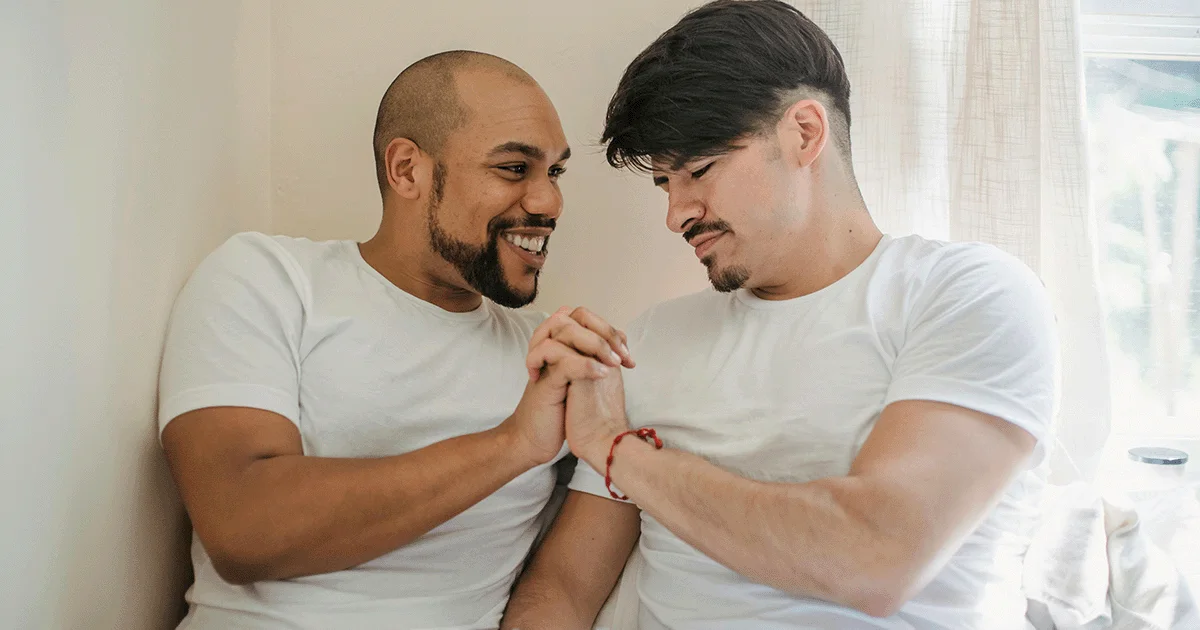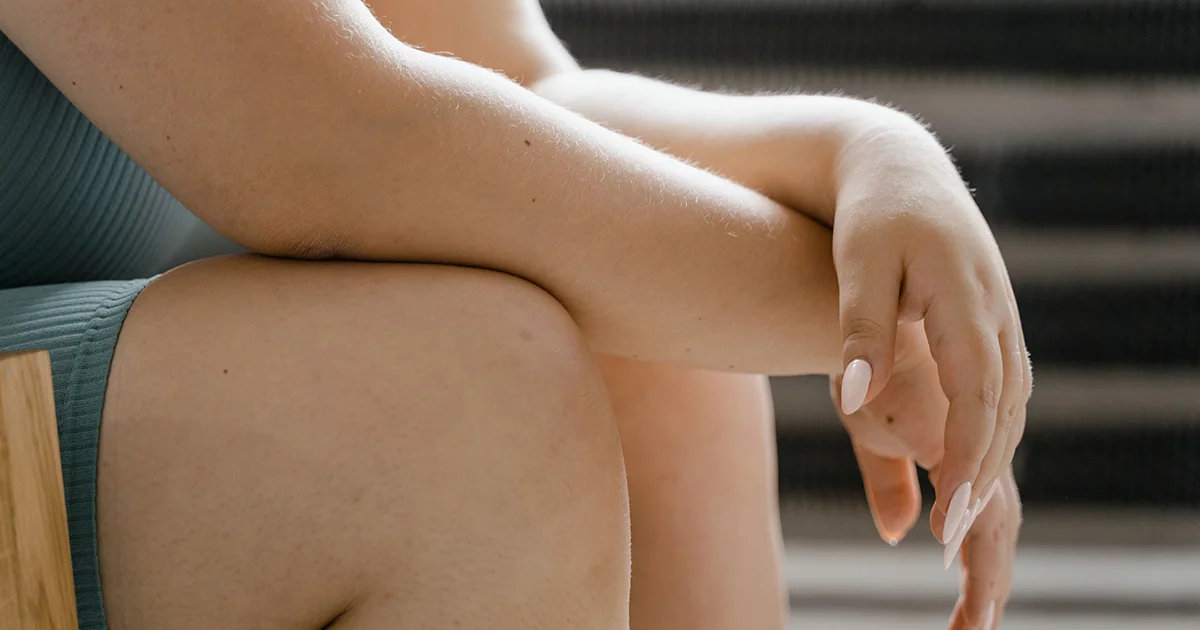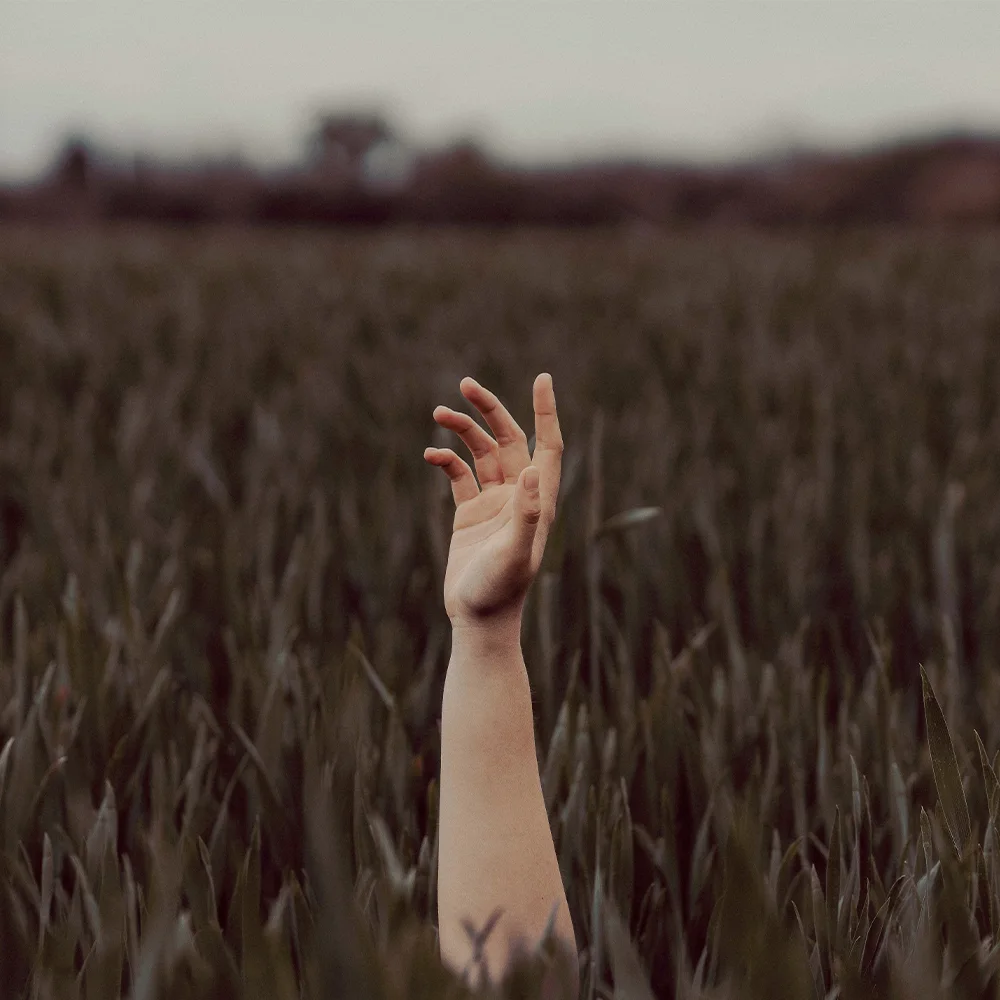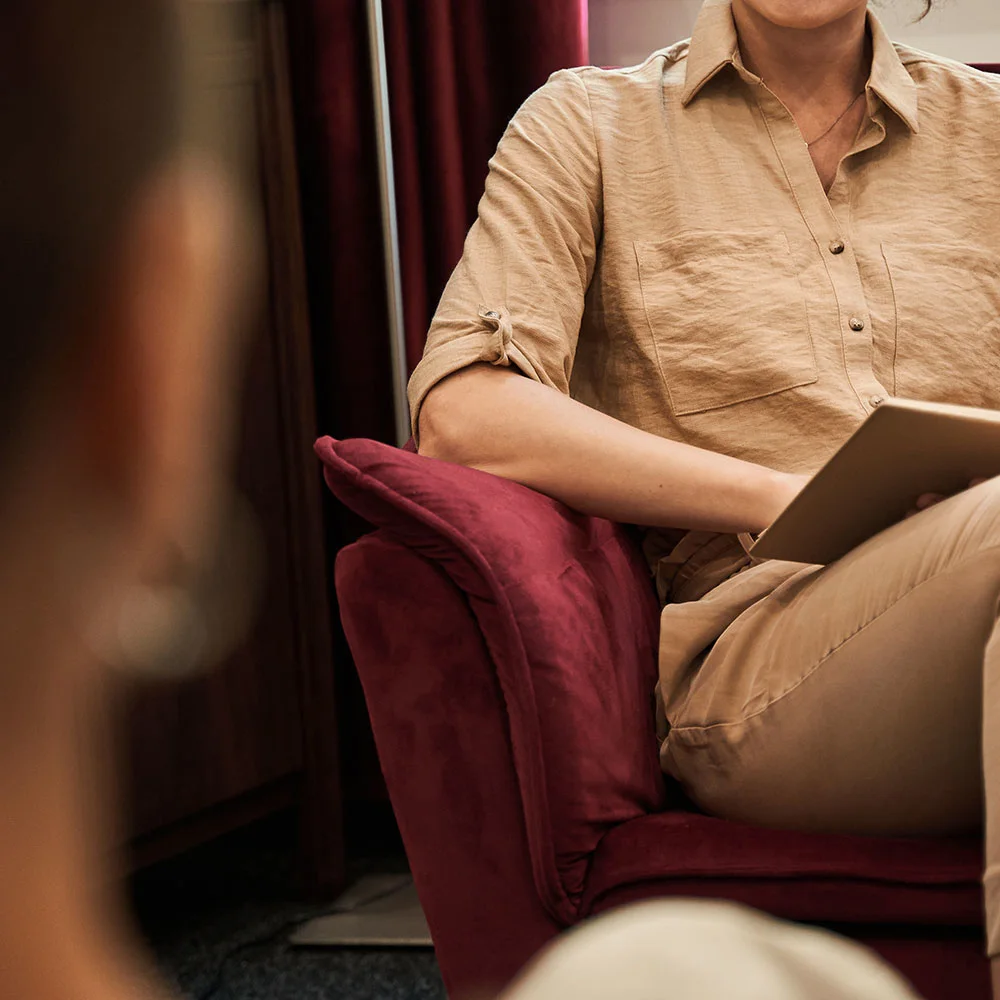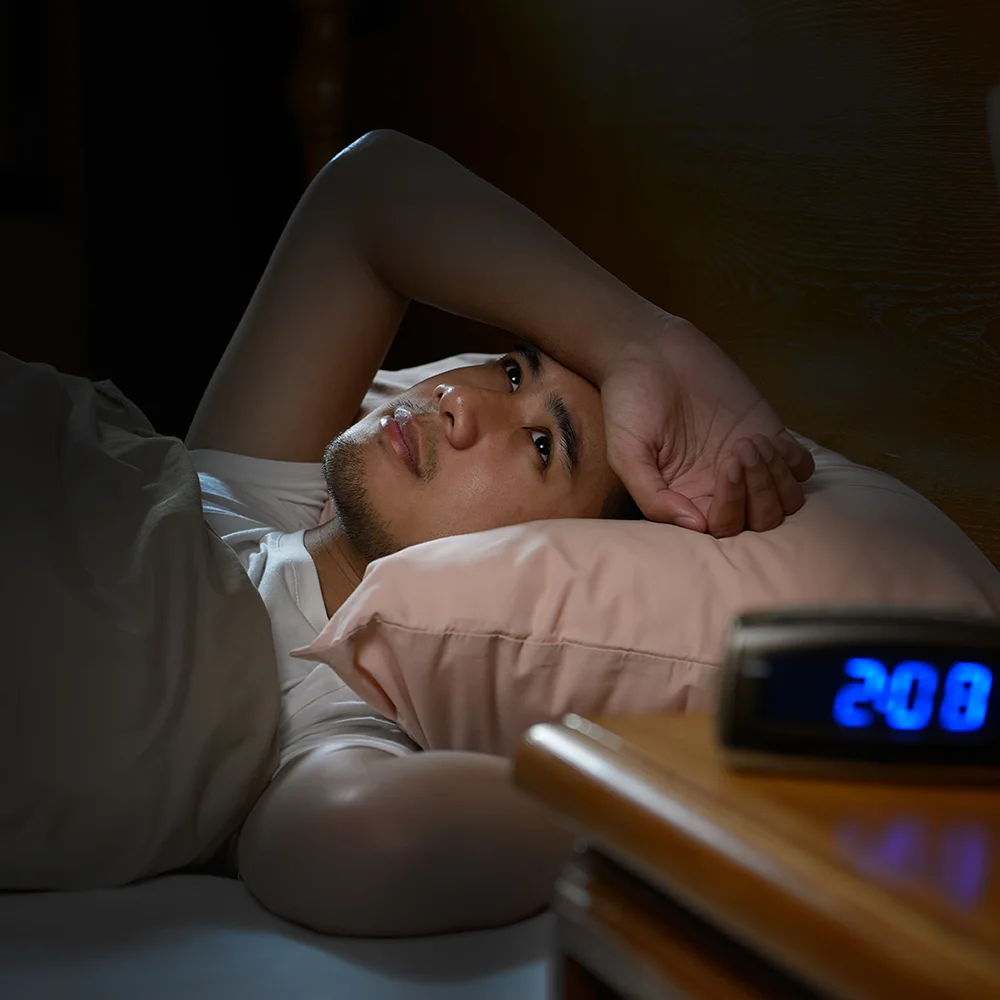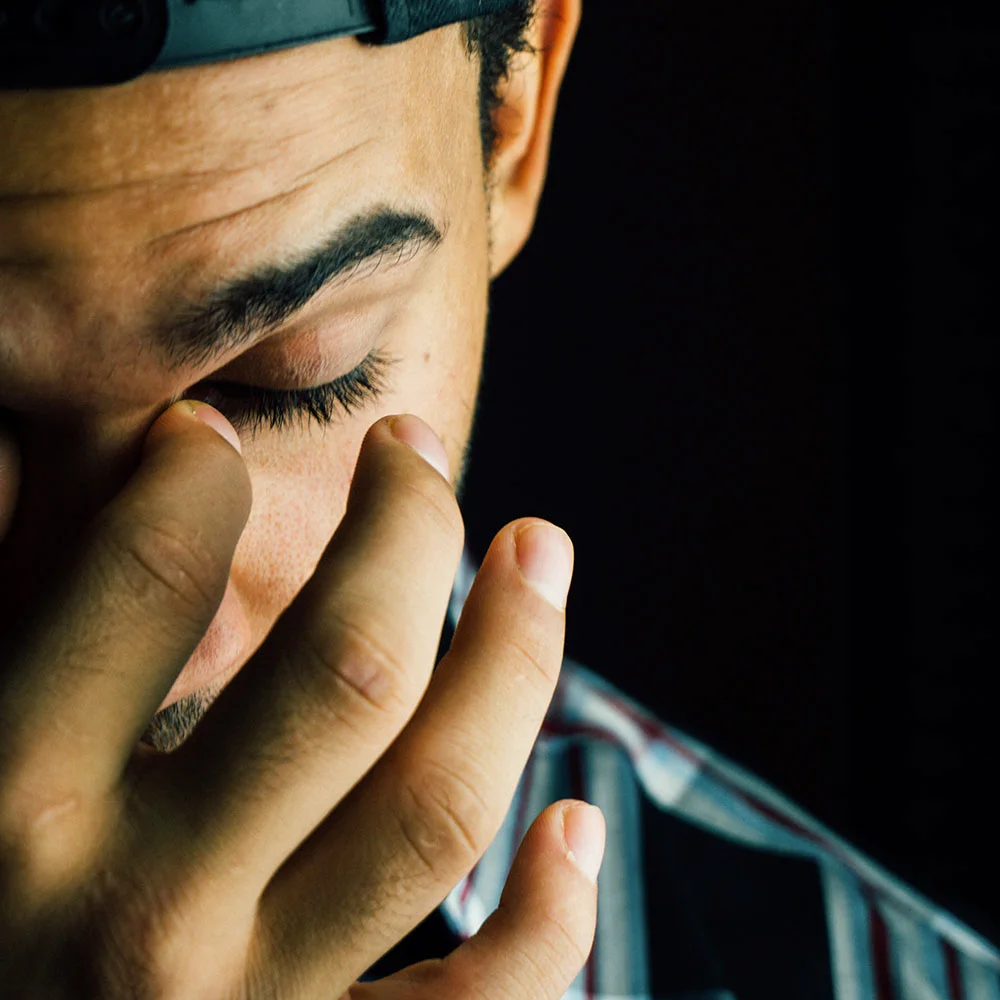Here's what we'll cover
Here's what we'll cover
Here's what we'll cover
You feel that familiar tightness in your chest and your mouth getting dry. Your heart starts to race as the anxiety sets in. It’s the familiar start of a panic attack, but it won’t ruin your day like it has in the past.
You mentally go through the grounding techniques for anxiety you've been practicing and select one. You find a quiet place, sit comfortably, and use some of the breathing exercises you’ve learned. Slowly, the anxiety begins to fade into the background. You know it's there, but it no longer feels like it controls your body. You’re able to go on with your day feeling safe and grounded in the present moment.
Doesn’t that sound nice? If you’re new to the concept of grounding techniques for anxiety, we’ve got you covered. Keep reading to learn some powerful coping strategies to manage your anxiety.
What is grounding?
Grounding techniques are coping strategies that help you connect with your present moment and surroundings, to pull you away from negative thoughts, anxiety, or flashbacks.
These exercises provide therapeutic and creative tools that help you strengthen your connection to your body and reality. Grounding skills can be physical, emotional, sensory, or social. They are especially beneficial in cases of (de Tord, 2015):
Stress
Trauma
The original concept of grounding was developed by the body psychotherapist Alexander Lowen and is based on the interaction of body and mind. According to Lowen, humans are physically, emotionally, and energetically grounded to the earth. A person with body awareness is well-connected to the ground. This physical stability leads to emotional stability (de Tord, 2015).
One formal concept of grounding includes six important aspects (de Tord, 2015):
Contact with the ground
Connection with one’s own physical body
Recognizing what you are feeling
Discharge of energy into the ground
Understanding yourself
Connecting and relating to others
Grounding techniques for anxiety can be brief, such as taking a few deep breaths, or more formal exercises, such as a meditation routine. They often involve the use of the senses or movement to connect you to your present surroundings.
The benefits of grounding techniques for anxiety
Anxiety is one of the most common mental health conditions in the general population. It is an automatic state of alarm triggered by your brain’s real or perceived sense of danger. Your body gets ready to fight or flee in response to something it views as a threat (Chand, 2021).
Everyone experiences anxious thoughts occasionally. It's a normal response that keeps you safe. It can become a problem, though, when your brain begins to overestimate the amount of danger in a situation. This can lead to excessive anxiety that interferes with your life.
Learning grounding exercises can help you to defuse building anxiety. With practice, you can manage anxiety or prevent it before it starts. Grounding skills can help you when you (Center for Substance Abuse Treatment, 2014):
Feel overwhelmed by memories of the past or worries about the future
Experience strong emotions
Dissociate or have flashbacks
Have a panic or anxiety attack
If you experience one or more of these conditions, grounding can help you to return and stay in the present moment. Instead of being overwhelmed by thoughts, feelings, or memories, you can acknowledge them while also knowing that you are safe and in control in the present (Center for Substance Abuse Treatment, 2014).
How to practice grounding techniques
You can use grounding techniques to prevent or interrupt periods of anxiety. If possible, you should explore different methods and practice these skills when you aren’t feeling anxious to have an easier time turning to them in those moments when you are feeling anxious. You may need to experiment with varying techniques to find the most helpful ones (Robertson, 2013).
It can be helpful to identify your anxiety triggers and warning signs ahead of time. These can be physical sensations (such as dizziness) or the presence of strong emotions (such as feeling criticized). Paying attention to these triggers can help you predict, interrupt, or reduce the impact of future anxiety episodes (Robertson, 2013).
Once you know your triggers, then think about the sensory inputs you already enjoy. Start with the sights, smells, tastes, sounds, and touches that already make you feel present and safe. These senses might come from your favorite vacation, memories of a loved one’s home, anything that makes you feel safe and happy. Explore new ways to activate these senses. Take note of which experiences make you feel better and which are unpleasant (Robertson, 2013).
If you find yourself experiencing the start of an anxiety episode, these pleasant sensory experiences are all coping skills that you can use to ground yourself and avoid getting caught up in the emotion.
10 grounding techniques for anxiety
There are many techniques you can practice, but these 10 are a great place to start. The first five focus on physical grounding techniques, while the last five focus on mental/cognitive grounding techniques.
1. Breathing exercises
There are many different types of breathing exercises that help you to focus and lower anxiety. One activity, diaphragmatic breathing, has been scientifically shown to help those who practice it improve their concentration and mood and lower cortisol levels (a marker for stress) (Ma, 2017). For this, you will breathe deeply, allowing your belly to swell, and focus on how your body expands with each inhale and contracts with each exhale.
2. Physical exercise
Try a few exercises or a bit of yoga. You can also do jumping jacks, skip rope, jog in place, or clench and stretch different muscle groups one by one. Pay attention to how your body feels with each movement. How does it feel when your hands or feet touch the floor or move through the air?
3. Dance
Put on your favorite music, and dance like no one else is there. Feel the strength in your limbs as you move with and against gravity. Feel the rhythm and percussion of the music. Grounding is a key concept in dance and movement therapy (de Tord, 2015).
4. Engage the senses
Try the 5-4-3-2-1 technique to list items around you that you notice with your senses. For example, notice five things you see, four things you hear, three things you can touch from where you’re sitting, two things you can smell, and one thing you can taste. Try to pick out the little things you might not always pay attention to, such as the hum of your computer or a speck of color in the carpet.
5. Notice your surroundings
Make it a point to notice the feeling of the air against your skin as you move, the grass beneath your feet, the sound of nearby traffic, or any other objects in your immediate area. Intentionally noticing your surroundings has been shown to help decrease feelings of dissociation and improve the quality of life for those with post-traumatic stress disorder (Kaur, 2016).
6. Distraction activities
Pick a favorite activity that requires a little bit of concentration. You can read a book, watch a TV show, play a game on your phone, or work on a puzzle. Try to focus entirely on that activity instead of your feelings of anxiety or the situations causing them.
7. Talk with someone
Connecting with the people around you is a great way to stay present. You can talk about anything, not necessarily just what's bothering you (but that helps too). Alternatively, if no one is around, you could call someone, send a text or email, send a card, or write a letter.
8. Mindfulness practices
Mindfulness is the non-judgemental awareness of the present moment. This means noticing things as they are without labeling them as good or bad. You can be mindfully aware of your sensations, thoughts, bodily states, consciousness, and the environment. Mindfulness practices such as sitting meditation, body scans, and yoga can help you focus on and accept your body’s sensations (Hofmann, 2017).
9. Play with a pet
If you have a pet with you, spend some time playing or just sitting with them. Notice how their fur feels when you pet them. What unique markings or characteristics do they have? If you’re not with your pet or don’t have one, think about your favorite animal or how your pet or a pet you know would comfort you if they were there.
10. Use an anchoring phrase
Anchoring phrases or cognitive updates are statements of known facts that you can recite to help calm down. This might be something like, “I’m Full Name. I’m X years old. I live in City, State. Today is Friday, June 3. It’s 10:04 in the morning.” Keep adding as many factual details as you need. You can also write these on an index card to help with dissociative episodes or nightmares (Robertson, 2013). These facts can ground you in reality.
When to get additional help
The best part about using grounding techniques for anxiety is that you can do many of these skills with no equipment or anyone else’s help.
If you’re having severe anxiety symptoms or feel like you could use some extra help identifying some other common grounding techniques that might work for you, reach out to a mental health professional. They can help you explore new skills or help you get medical help if needed.
DISCLAIMER
If you have any medical questions or concerns, please talk to your healthcare provider. The articles on Health Guide are underpinned by peer-reviewed research and information drawn from medical societies and governmental agencies. However, they are not a substitute for professional medical advice, diagnosis, or treatment.
References
Center for Substance Abuse Treatment (US). (2014). Exhibit 1.4-1, grounding techniques. Trauma-informed care in behavioral health services. Treatment Improvement Protocol (TIP) Series, No. 57. Retrieved from https://www.ncbi.nlm.nih.gov/books/NBK207188/box/part1_ch4.box5/?report=objectonly
Chand SP, Marwaha R. (2021). Anxiety. [Updated 2021 May 1]. In: StatPearls [Internet]. Retrieved from https://www.ncbi.nlm.nih.gov/books/NBK470361/
de Tord, P., & Bräuninger, I. (2015). Grounding: theoretical application and practice in dance movement therapy. The Arts in Psychotherapy, 43, 16-22. doi: 10.1016/j.aip.2015.02.001. Retrieved from https://www.sciencedirect.com/science/article/abs/pii/S0197455615000040
Hofmann, S. G., & Gómez, A. F. (2017). Mindfulness-based interventions for anxiety and depression. The Psychiatric Clinics Of North America, 40 (4), 739–749. doi: 10.1016/j.psc.2017.08.008. Retrieved from https://www.ncbi.nlm.nih.gov/pmc/articles/PMC5679245/
Kaur, M., Murphy, D., & Smith, K. V. (2016). An adapted imaginal exposure approach to traditional methods used within trauma-focused cognitive behavioural therapy, trialled with a veteran population. Cognitive Behaviour Therapist, 9, e10. doi: 10.1017/S1754470X16000052. Retrieved from https://www.ncbi.nlm.nih.gov/pmc/articles/PMC6130742/
Ma, X., Yue, Z. Q., Gong, Z. Q., Zhang, H., Duan, N. Y., Shi, Y. T., et al. (2017). The effect of diaphragmatic breathing on attention, negative affect, and stress in healthy adults. Frontiers In Psychology, 8,
doi: 10.3389/fpsyg.2017.00874. Retrieved from https://www.ncbi.nlm.nih.gov/pmc/articles/PMC5455070/
Robertson, M. E., Blumberg, J. M., Gratton, J. L., Walsh, E. G., & Kayal, H. (2013). A group-based approach to stabilisation and symptom management in a phased treatment model for refugees and asylum seekers. European Journal Of Psychotraumatology, 4, doi: 10.3402/ejpt.v4i0.21407. Retrieved from https://www.ncbi.nlm.nih.gov/pmc/articles/PMC3871835/

